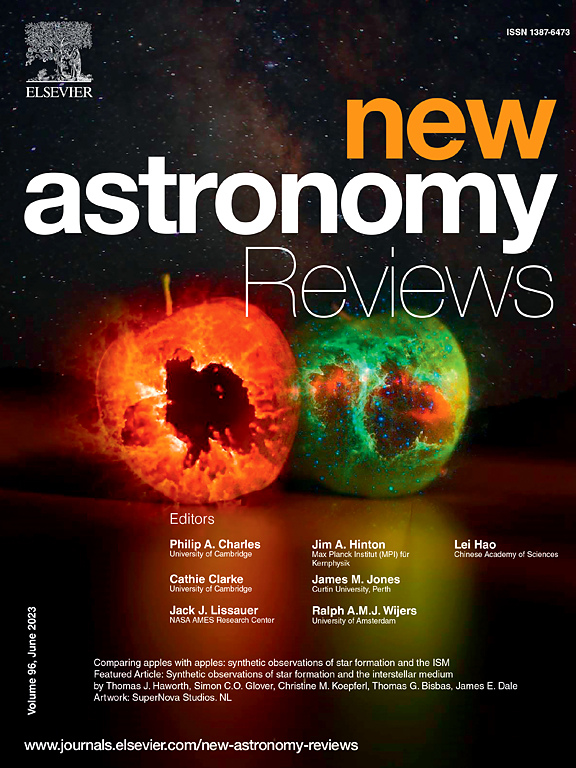从奥卡姆剃刀原理的观点回顾暗物质的最新进展
IF 26.8
2区 物理与天体物理
Q1 ASTRONOMY & ASTROPHYSICS
引用次数: 5
摘要
绝大多数关于暗物质的理论要么引入了从未被实验发现的奇异亚原子粒子,要么改变了物理定律。在这篇简短的综述中,我讨论了三种没有做到这一点的理论,因此从奥卡姆剃刀原理的角度来看,它们更可取。本文章由计算机程序翻译,如有差异,请以英文原文为准。
Review of latest advances on dark matter from the viewpoint of the Occam razor principle
The overwhelming majority of theories on dark matter either introduce exotic, never discovered experimentally subatomic particles or change the physical laws. In this brief review I discuss three theories that do not do this, so that they are preferable from the viewpoint of the Occam razor principle.
求助全文
通过发布文献求助,成功后即可免费获取论文全文。
去求助
来源期刊

New Astronomy Reviews
地学天文-天文与天体物理
CiteScore
18.60
自引率
1.70%
发文量
7
审稿时长
11.3 weeks
期刊介绍:
New Astronomy Reviews publishes review articles in all fields of astronomy and astrophysics: theoretical, observational and instrumental. This international review journal is written for a broad audience of professional astronomers and astrophysicists.
The journal covers solar physics, planetary systems, stellar, galactic and extra-galactic astronomy and astrophysics, as well as cosmology. New Astronomy Reviews is also open for proposals covering interdisciplinary and emerging topics such as astrobiology, astroparticle physics, and astrochemistry.
 求助内容:
求助内容: 应助结果提醒方式:
应助结果提醒方式:


